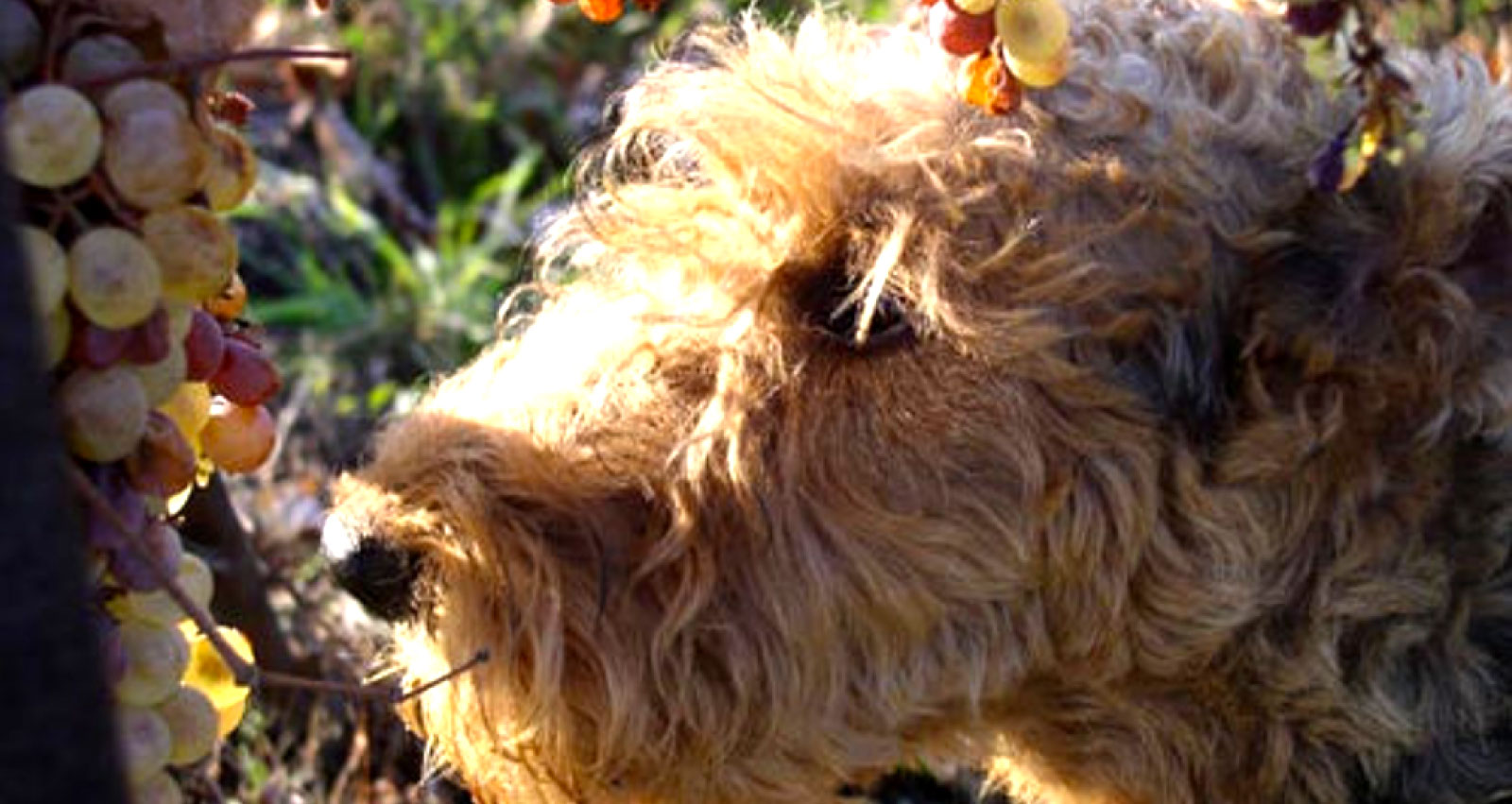The Real Truth About Grapes & Dogs

Grapes – To feed, or not to feed?
For a long time, there’s been an ongoing debate about whether or not grapes (and raisins) are toxic to dogs. I’ve discussed the question of grape toxicity in dogs some time ago on one of my past radio shows, and I admit that I have always been skeptical of this because many of my clients have fed grapes and raisins in small amounts and never had any problems.
But several veterinarians have provided some recent evidence and personal experiences that convinced me that there is some validity to the issue. My own suspicion has always been that the root cause is a fungal toxin that causes some dogs to get sick (through renal failure), and this theory is supported by the fact that this toxicity occurs even among dogs that consume organic grapes (organic produce should, in theory, rule out pesticides or chemical toxins as a culprit). But the latest news appears to indicate that copper compounds may be the underlying factor for the potential toxicity of grapes and raisins. Why?
Copper compounds are often used in organic farming as a fungicide (fungus is one of the most common problems in commercial grape operations). Some breeds of dogs, especially the West Highland White Terrier, Bedlington Terrier, and Doberman Pinscher, tend to have a genetic predisposition and sensitivity to copper. So, copper compounds infused into grapes combined with breed-specific genetic sensitivities could explain why some dogs are affected while others aren’t.
The bottom line: There are many factors that determine whether dogs will be affected by grape (and raisin) toxicity. Unless you know the exact source of your grapes (and can confirm that copper compounds are not being used as a fungicide), it’s probably best to omit grapes from your dog’s diet. When in doubt, leave it out!
Safe Fruits For Snacks & Treats
And, I’d be remiss if I didn’t provide you with a list of fruits that are safe to give to your dogs. Fruits are great treats or snacks, and are often rich in antioxidants (good for strengthening the immune system and suppressing cancer). Remember, fruit should be provided in small quantities only (too much can cause diarrhea or digestive problems), and fruits should be fed with caution for dogs with diabetes or those with metabolism issues.
Also, avoid feeding “cooling” fruits (for example bananas, watermelon, cantaloupe) during the winter. You’ll need to cook them first to infuse “warming properties” in order to feed them during the winter. For example, apples can be boiled with a little cinnamon powder to make them more “warming;” the cooked fruit will then be easier to digest.
Whenever possible feed organic fruits, as fruit skins often contain most of the vitamins and nutritive content. If you are unable to find or buy organic fruits, buy whatever is available, wash it well, and then peel off the outer skin before feeding to your pets.
- Apples: Cooling energy, Yin tonic, relieves summer heat, lubricates the lungs, moisturizes intestines (high in fiber); sedates Yang and treats constipation, chronic diarrhea with mucous, dry mouth, summer heat conditions; contains antioxidants, low phosphorus, and sodium.
- Strawberries: Warming energy, moistens lungs, tonifies Qi and blood, supports liver and kidney functions, disperses blood stagnation, detoxifies; treats dry cough, malnutrition, poor appetite, incontinence, painful indigestion, fever and thirst; contains high amounts of vitamin C and antioxidants.
- Papaya: Neutral energy, tonifies Qi and blood, supports digestion, disperses blood stagnation, resolves dampness; treats indigestion, diarrhea, persistent cough, and internal parasites; stimulates milk production and contains antioxidants, minerals, and vitamins.
For a complete list of safe fruits and their unique healing properties, please check out my book: Fresh Food & Ancient Wisdom.
Gorgeous photo via amonja
